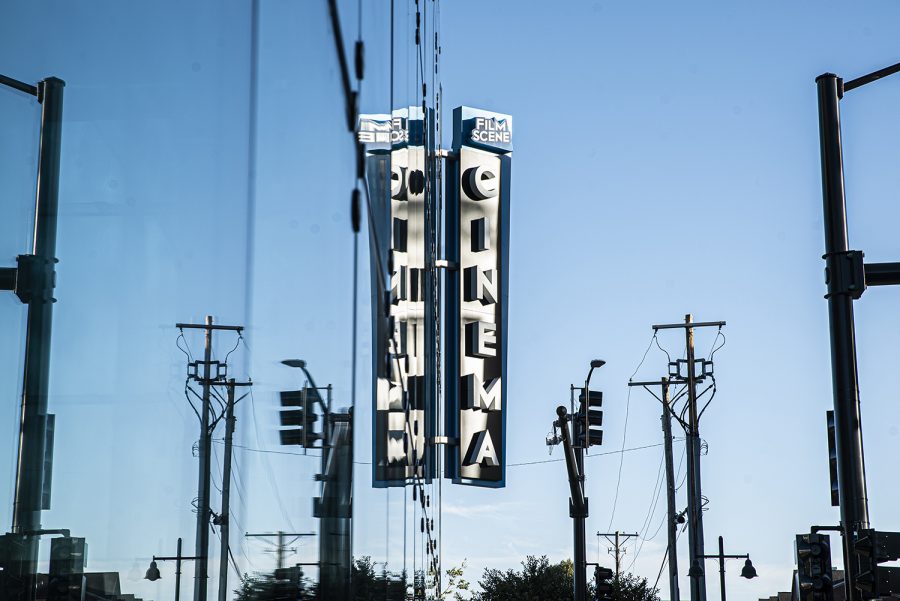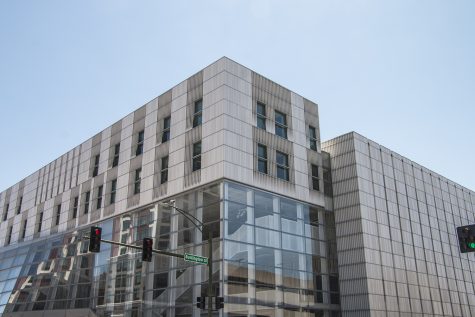UI film majors share concerns about movie theater operations
University of Iowa film students shared their thoughts about theater safety, the importance of the theatrical experience, and their concerns for the future of independent theaters.
Tate Hildyard for The Daily Iowan
The outside of Filmscene is seen on Wednesday, Sept. 2, 2020.
September 2, 2020
There’s no denying that major motion pictures are starting to come back in full swing. With films such Unhinged, starring Russell Crowe, and New Mutants, Marvel’s latest cinematic release, film majors at the UI have raised concerns regarding safety and the future of smaller theaters that remain closed because of the COVID-19 pandemic.
Some students said they believe movie theaters could be safe to reopen depending on safety precautions, while others said it’s too risky to go at all.
Film major Dalton Bantz said that movie theaters are inherently unsafe to return to due to their confined structure.
“I think the environment that’s required for a movie theater, where people are sitting in the same room for two hours at a time, isn’t safe during COVID,” Bantz said. “I don’t feel comfortable with that.”
Film and screenwriting major Orson Codd was considering returning to theaters before positive coronavirus cases spiked in Johnson County.
“The thing that was tempting was theaters doing ‘select your seats’ online,” Codd said. “I could see that not very many seats were selected, so I thought if I was there alone then it would be fine.”
RELATED: FilmScene responds to COVID-19 financial impacts
FilmScene offers theater rentals so patrons can see movies alone if they like. The rental is capped at a group of 10 for theaters that seat 100 people, according to FilmScene employee and film major Jack Christensen.
“I think FilmScene is doing the best it can,” Christensen said. “We’ve been doing a lot to make it as safe as possible.”
All three students said they have concerns about the survival of small and nonprofit theaters such as FilmScene.
After losing revenue when the pandemic began, smaller theaters will also be affected by the reversal of the Paramount Decree, a Supreme Court case which prevented theaters owned by film studios from having exclusive rights to the studio’s films.
“I think if these theaters get run out of business, then I think it’s going to severely limit the range of films that people can watch,” Christensen said. “It’s all going to be what you can see at Marcus Theaters or AMC.”
Codd said the cultural significance of cinemas can’t be overlooked and that closures would be tragic.
“I don’t think we can ever underestimate movie theaters,” Codd said. “I kind of hate the term ‘experience it on the big screen’ because I think it’s kind of weird and dated, but also it’s a real thing. You really are experiencing these movies in a way you can’t through streaming.”
Bantz shared a similar sentiment. To him, seeing a movie is a shared social experience unlike anything else. The film major added that the inability to experience films as intended is also a setback for those studying the art form.
“Theaters are a part of film history,” he said. “Not being able to experience them takes away from our learning. It’s really disheartening.”


















